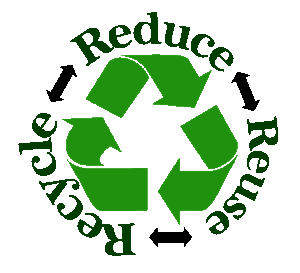
James D. Poovey, Inc. takes pride in supporting the businesses and local organizations in the communities where we live and work, which is why we are dedicated to doing all we can to make sure that, as a firm, we tread as gently upon the earth as possible. We recognize that the operation of our law office has an impact on the environment and that we make conscious daily choices in the performance of our work that can reduce or increase awareness of that impact.
To help soften our environmental footprint, we have implemented green and earth-friendly practices throughout our offices to reduce paper and energy waste. We demonstrate our commitment to the environment and a sustainable future in a number of ways, including:
- Recycle paper, toner, cans, glass, newspaper, batteries
- Use recycled and recyclable copier and printer paper, toner, notepads and memo pads
- Recycle old electronic equipment. Some computer manufacturers, among others, will accept and recycle electronics, thus keeping them out of landfills
- Use a spelling check function before printing out documents
- Use screensavers on computers
- Turn off unneeded lights
- Install and set programmable thermostats
- Close exterior doors to keep out excess heat and cold
- Combine equipment functions in one machine (printer, fax, scanner, copier)
- Implement electronic filing where feasible
- Endeavor to improve our environmental performance through training and engagement with all attorneys and staff.
- Encourage “think before you print!”
- Power down equipment nightly
- Donate unwanted items to schools and charities
- Reuse office supplies, furniture, and equipment when possible
- Utilize recycling containers at all work stations and in common staff areas
- Use durable cups, glasses, plates and utensils
- Utilize energy efficient light fixtures
- Extend clients the option of paperless billing
- Utilize paperless data storage
Using recycled instead of raw materials saves energy, conserves scarce natural resources, and reduces emissions of greenhouse gases and other dangerous air and water pollutants. Recycling is far more than a local waste management strategy; it is also an important strategy for improving efficiencies and reducing environmental impacts inherent in industrial production.
Key benefits include:
- Prevents emissions of many air and water pollutants.

- Supplies valuable raw materials to industry with less environmental impact and cost.
- Stimulates local economic development and growth of green technologies.
- Saves energy.
- Reduces the need for new landfills.
- Reduces greenhouse gas emissions.
- Creates jobs.
- Conserves resources for future generations.